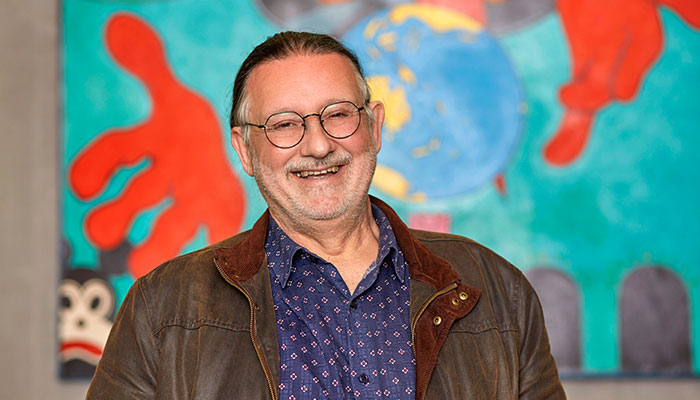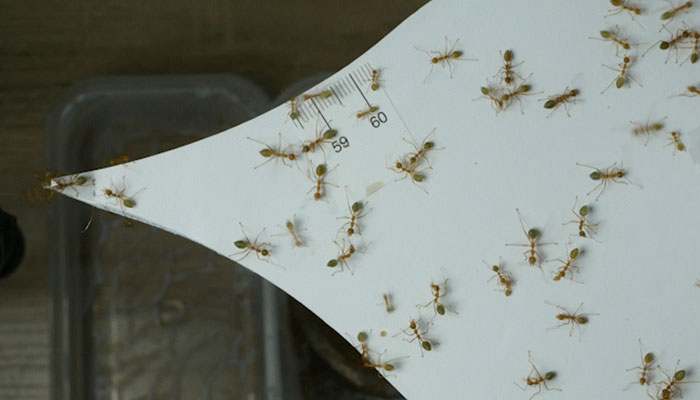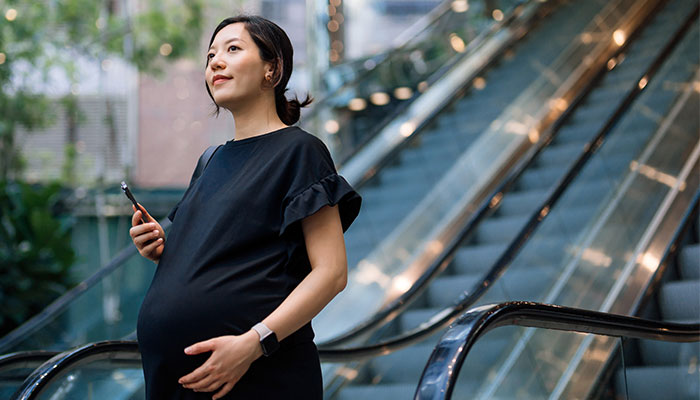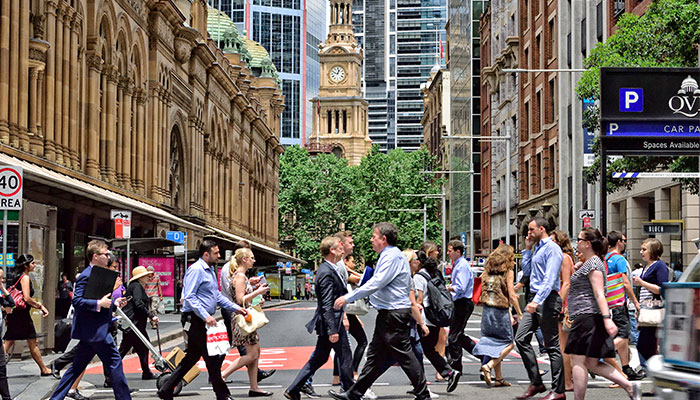My mother came from Malta and my father came from Poland. In primary school I experienced extreme racism. I was bashed unconscious just for being a wog. My background made me realise how diverse Australia was, and that we should strive for equality.

Connecting artworks and research: Macquarie Art Gallery curator Leonard Janiszewski, pictured, believes art is connected to all fields of study.
One of my lecturers at Sydney University told me that if I wanted to be a professional Australian historian then I had to forget this wog stuff. I took it to heart, and I was angry. That motivated me to look at Australian society in a different way. So, I decided to link up with the person who became my partner, photographer Effy Alexakis. We developed a project called In Their Own Image: Greek Australians.
A Professor of Modern History at Macquarie knew of the work that Effy and I were doing because she was also working as the university photographer at the time. He said to me: “Would you like to come and work here because we need to diversify our history.”
Later, because I was an applied historian and also had a fine arts background, the senior curator at the gallery Rhonda Davis asked me to apply for a position there.
The gallery is a building where you can come and relax. I don't think many people know it’s open to the public. People should not be intimidated just because it's located in the formal atmosphere of the Chancellery. Little miracles take place when people are not scared to share their observations.
People with dementia will tell you the way they see things when they look at the art, and that is very refreshing.
We are able to integrate our exhibitions into the academic research here. Art is connected to everything. We’re all connected, and art gives you insights into philosophy, physics, marine-biology and Egyptology.
Some of the best experiences I have had here are the events associated with the art shows, like when artists come to do talks or poetry readings. We’ve even had a chamber orchestra in here.
In 2011, we started developing programs with aged care facilities. They would bring residents here for a visit and it was wonderful because the people with dementia will tell you the way they see things when they are looking at the art, and that is very refreshing. They give us insights which we hadn’t even considered before.
They seem to genuinely get a lot of enjoyment out of the visit to the gallery and we respect them for what they bring into the conversation. Some of the people who have come here were holocaust survivors and there have been times when I felt incredibly humbled to be alive. I had tears swelling in my eyes.
You do get your characters. There was one guy who used to be a rugby player and every time he came in, he would put his arm around me and say: “Come on matey, we’re going into the scrum.” I enjoyed that aspect of our conversation. It always came back to the footy.
The program kept growing and growing, and the carers got involved too. They would tell us the residents really enjoyed it and wanted to come again. Unfortunately, then COVID hit. It really dented us but we are now trying to get the visits going again.



